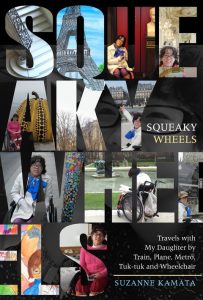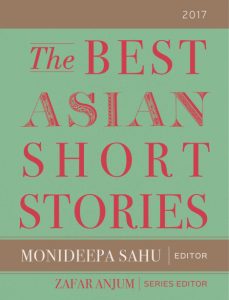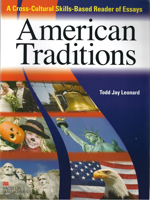2024 Japan Writers Conference to feature at least four JET alums
Posted by Tom Baker
The lineup of presenters for the 18th annual Japan Writers Conference has just been announced. Over the first weekend in November, there will be 29 sessions on writing poetry, fiction, and nonfiction, plus writing career and marketing advice.
At least four sessions will be led by former JETs. Poet Warren Decker will lead a workshop on haiku and other short verse. Novelist Charles Kowalski will present “The Time Traveler’s Guidebook: Tips and Traps in Historical Fiction Writing.” Novelist Suzanne Kamata will give a talk on “Writing for Emerging Readers.” And a motivational session titled “Not an Impossible Dream” will be presented by travel writer Patrick Murphrey.
As always, the Japan Writers Conference is a free event. This year’s venue is in Futaba, Fukushima Prefecture, meaning that JWC attendees will have a chance to learn about the ongoing recovery of this disaster-affected area.
For more details, visit the official JWC website, or read about the conference in this story from AJET Connect magazine last year.
A must-read! Suzanne Kamata on blurbs at the Japan Writers Conference
Posted by Tom Baker
JET alum and prolific author Suzanne Kamata will discuss the art of blurbing — how to get good blurbs for one’s own books and how to write them for others’ — at this year’s Japan Writers Conference. The conference, which is free, will take place in Nagoya on Oct. 14-15.
Here’s the official description of her talk:
Suzanne Kamata
“This is the Best Book I’ve Ever Read”: Some Thoughts on Endorsements
Short Lecture with Q&A
Keywords: nonfiction, fiction, endorsements, blurbs, promotion, career
Endorsements — typically words of praise from an established author — are often deemed an essential marketing tool. However, well-known authors are often besieged with requests for such blurbs, and beginning authors may find approaching them to be intimidating. In this session, I will discuss the importance — or lack thereof — of blurbs, how to get them, how to use them, and how to write them, using examples from my own experiences and those of others.
Suzanne Kamata is the author of editor of many books including, most recently, the poetry collection Waiting (Kelsay Books, 2022), the IPPY-award-winning novel The Baseball Widow (Wyatt-Mackenzie Publishing, 2021), the middle grade novel, Pop Flies, Robo-pets and Other Disasters (One Elm Books, 2020), and the Hi-Lo novel romantic comedy Bake Sale (Gemma Open Door, 2022). She is an associate professor at Naruto University of Education.
Suzanne Kamata to host panel discussion at Japan Writers Conference
Posted by Tom Baker
JET alum and prolific author and editor of fiction and nonfiction Suzanne Kamata will host a panel discussion on how the pandemic has changed the writing life and the publishing world at this year’s Japan Writers Conference. The conference, which is free, will take place in Hiratsuka, Kanagawa Prefecture, on Oct. 15-16, but participants must sign up by Oct. 8.
Here’s the official description of her panel’s presentation:
Suzanne Kamata
Clara Kiyoko Kumagai, Kristin Osani, Clarissa Goenawan, Sara Fujimura
Pivot: Writing for a Post-Pandemic World
Panel Discussion
Fiction
How do you keep going when the world, the publishing landscape, and YOU have had major paradigm shifts since 2020? Multi-published authors Sara Fujimura, Clarissa Goenawan, Suzanne Kamata, Clara Kiyoko Kumagai, and Kristin Osani discuss the limitations and growth opportunities that come with this new post-pandemic reality.
Are you waiting for the publishing world to “go back to normal?” The bad news: It’s not. Supply chain woes, soaring material costs, editorial burnout, and continued unrest in the world have made traditional publishing harder to break into and even harder to sustain a career. Savvy authors pivot. Five multi-published, award-winning, globally-minded authors give a state-of-the-industry report from their region of the world. They identify specific challenges they’ve had in the last two years, including launching new books during a pandemic (One out of 10 stars. Highly DON’T recommend!). They also offer tips and techniques on how to keep your writing career rolling when it seems the world is constantly conspiring against you.
American Suzanne Kamata has lived in Shikoku for over 30 years. During the pandemic, she published an award-winning middle grade novel, Pop Flies, Robo-pets and Other Disasters; The Baseball Widow, a novel for adults, and Waiting, her poetry debut. She is an associate professor at Naruto University of Education.
Clarissa Goenawan (she/her) is an Indonesian-born Singaporean writer and translator. Her award-winning short stories have appeared in literary magazines and anthologies in Singapore, Australia, Japan, Indonesia, Italy, the UK, and the US. Rainbirds, her debut novel, has been published in eleven different languages. Her second novel, The Perfect World of Miwako Sumida, came out in 2020. Watersong is her third novel.
Kristin Osani (she/her) is a queer fantasy writer who lives in Kyoto, where she works as a freelance Japanese-to-English video game translator when she’s not wordsmithing, working on nerdy cross-stitching, or cuddling her two cats (three if you include her husband). She has translated games like The Kids We Were, Voice of Cards, and Triangle Strategy. Her original fiction has appeared in FlashPoint SF, the Arcanist, and Ghost Orchid Press’s Beyond the Veil: Supernatural Tales of Queer Love anthology.
Clara Kumagai is from Ireland, Canada and Japan. Her fiction and nonfiction has appeared in publications such as The Stinging Fly, The Irish Times, Banshee, Room, Cicada, and The Kyoto Journal, among others. Her children’s story, A Girl Named Indigo, was translated and published in Japanese with the title Indigo wo sagashite (Shogakukan, 2020). Her young adult novel, Catfish Rolling, is forthcoming in 2023. She currently lives and works in Tokyo.
Sara Fujimura is a hybrid author of four award-winning young adult books: Tanabata Wish, Breathe, Every Reason We Shouldn’t (Tor Teen), and Faking Reality (Tor Teen). She is represented by Ann Rose of the Prospect Agency. Every Reason We Shouldn’t was named an NPR Best Book of 2020. www.sarafujimura.com
JET alum writers: Suzanne Kamata on “Writing Identity”
Posted by Tom Baker
Novelist and JET alum Suzanne Kamata hosted a panel discussion on “Writing Identity” at the most recent Japan Writers Conference. Joining her were Tokyo-based writer Clara Kiyoko Kumagai; Kyoto-based fantasy writer and translator Kristin Osani; Indonesian-born Singaporean writer Clarissa Goenawan; and award-winning young adult author Sara Fujimura.
You can watch their discussion below, and find more JWC presentations — including several by former JETs — at the Japan Writers Conference YouTube Channel.
Also, if you would like to give your own presentation at the 2022 Japan Writers Conference this October, you can submit a proposal here. The deadline is June 1.
Author Suzanne Kamata to host panel discussion on identity at Japan Writers Conference
Posted by Tom Baker
JET alum Suzanne Kamata will lead a panel discussion on “Writing Identity” at the Oct. 15-17 Japan Writers Conference, a free event that is happening online. Suzanne is the author of multiple novels and nonfiction books, which you can read about at www.suzannekamata.com. The official descriptions of her talk appears below.
Suzanne Kamata
with Clara Kiyoko Kumagain, Kristin Osani, Clarissa Goenawan, Sara Fujimura
Writing Identity, From Inside and Outside
Panel Discussion
Fiction
Identity politics play a large part in determining which stories are published and how they are currently received in the English-speaking market. Generation Z readers — the audience for YA and New Adult titles — are especially aware of issues surrounding diversity, appropriation, and ownership. In this session, to be moderated by Suzanne Kamata, four authors of different backgrounds, writing about Japan from inside and out of their lanes, will discuss diversity, identity, inclusivity, and their own experiences and approaches to writing these in their own work.
In this era of #ownvoices and a heightened awareness of identity politics, what stories should be told, who should be allowed to write them, and how they should be presented are often contentious issues. In this moderated session, five authors of different backgrounds, writing inside and out of their lanes, will discuss diversity, identity, inclusivity, and their own experiences and approaches to writing these in their own work.
Award-winning author Suzanne Kamata was born and raised in the United States, but has lived in Japan for more than half of her life. She is the author or editor of 15 published books including, most recently, The Baseball Widow (Wyatt-Mackenzie Publishing, 2021) and Pop Flies, Robo-pets and Other Disasters (One Elm Books, 2020).
Clara Kiyoko Kumagai is from Canada, Japan and Ireland. She writes fiction and non-fiction for children and adults, and has had work published in Banshee, Room, Event, and Cicada. She currently lives in Tokyo.
Kristin Osani @KristinOsani is a freelance Japanese to English translator, writer, and editor
Her previous projects include Left Alive, Oninaki, Code Shifter, Dragalia Lost, and many more. Her short fiction is forthcoming in Flash Point SF.
Clarissa Goenawan is an Indonesian-born Singaporean writer. Her award-winning short fiction has appeared in literary magazines and anthologies in Singapore, Australia, Japan, Indonesia, the UK, and the US. Rainbirds, her first novel, has been published in eleven different languages.
Sara Fujimura @SaraFujimura is an award-winning young adult author and creative writing teacher. She is the American half of her Japanese-American family, and has written about Japanese culture and raising bicultural children for such magazines as Appleseeds, Learning Through History, East West, and Mothering, as well as travel-related articles for To Japan With Love. Her young adult novels include Tanabata Wish, Breathe, Every Reason We Shouldn’t (Tor Teen, 2020) and Faking Reality (Tor Teen, 2021). She lives in Phoenix with her husband and children.
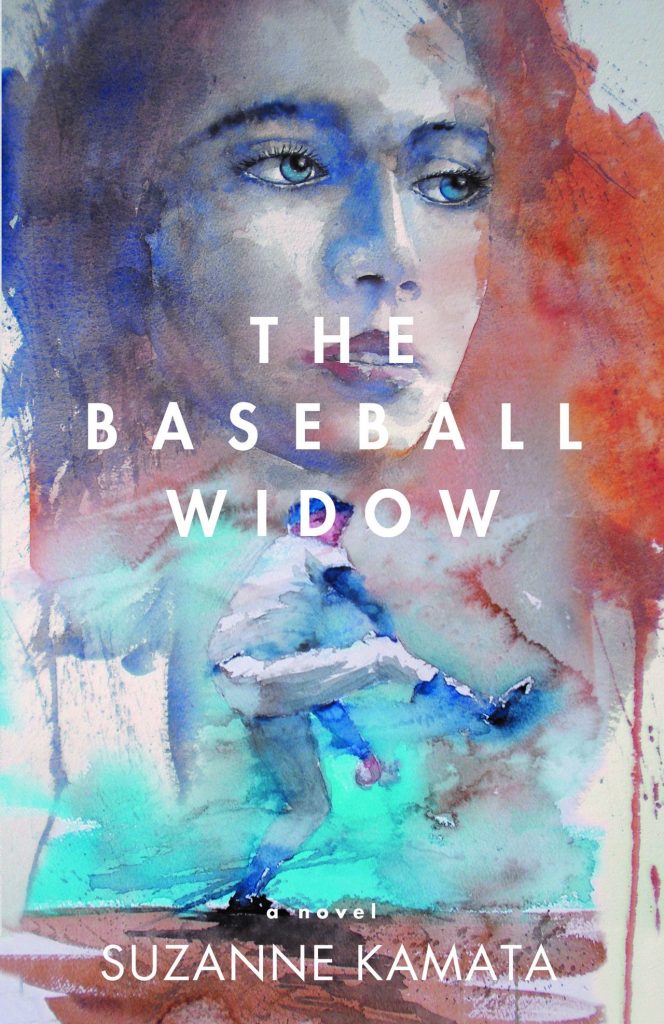
Suzanne Kamata to speak at Japan Writers Conference
Posted by Tom Baker.
JET alum Suzanne Kamata will be among nearly 50 published writers making presentations at this year’s Japan Writers Conference (Oct. 12-13 in Tokyo). Here’s the official description of her talk:
“Wheelchair User or Wheelchair-bound?: Representations of Persons with Disabilities in Children’s Books”
In this session, I will discuss positive and problematic representations of persons with using examples from recently published Japanese textbooks, and literature featuring children in Japan and other countries, including my own work, with a view to developing better awareness. With the approach of the 2020 Tokyo Paralympics, people with disabilities in Japan have been given more attention than perhaps ever before. English textbooks for Japanese children now frequently include stories about or representations of people with disabilities. Worldwide, initiatives such as #weneeddiversebooks and the call for #ownvoices have led to an increase of children’s and young adult books featuring characters with disabilities. That said, some of these representations, and the way that they are discussed remain problematic. When do stories about disability become “inspiration porn”? What kind of language should we use when discussing disability? Who has the right to tell these stories?
Suzanne Kamata is the award-winning author or editor of twelve published books including “Love You to Pieces: Creative Writers on Raising a Child with Special Needs” (Beacon Press, 2008), “Gadget Girl: The Art of Being Invisible” (GemmaMedia, 2013), “A Girls’ Guide to the Islands” (Gemma Open Door, 2017), “Squeaky Wheels: Travels with My Daughter by Train, Plane, Metro, Tuk-tuk and Wheelchair” (Wyatt-Mackenzie Publishing, 2019), and “Indigo Girl” (GemmaMedia, 2019). She is an Associate Professor at Naruto University of Education.
For more details, visit http://www.japanwritersconference.org/
Suzanne Kamata to reveal “The Truth about Writing Contests”
Posted by Tom Baker
The Japan Writers Conference, a free annual event that invariably attracts at least a few JETs, will be held at Otaru University of Commerce on Oct. 13 and 14. One of the JETs giving presentations this year will be Suzanne Kamata, who will be giving two of the 36 presentations scheduled for the big weekend. One of them was described in a previous JETwit post. Here’s the official description of the other:
“The Truth about Writing Contests”
Short lecture with Q & A
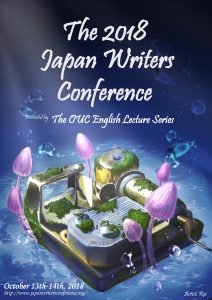 I will describe various kinds of writing contests, the pros and cons of entering said contests, and give advice on how to improve an entrant’s chances of winning.
I will describe various kinds of writing contests, the pros and cons of entering said contests, and give advice on how to improve an entrant’s chances of winning.
There are many contests for writers. Some may think that it’s not worth the time or the cost of the entrance fees. After all, many contests get hundreds of submissions, and judging is often somewhat subjective – every reader has different likes and dislikes. However, thanks to winning or placing in writing competitions, I have received plane tickets to Paris, Sydney, and Columbia, South Carolina (from my home in Japan). I’ve also been awarded cash, medals, trophies, and plaques and shiny prize stickers for my books, not to mention bragging rights and prestige. A contest win can also be an excuse for a burst of publicity. Contests may lead to recognition, getting an agent or publisher, and book sales. So how do you decide which contests to enter? How do you win? In this session I will share my expertise as a frequent contest entrant, sometime winner, and occasional judge.
Suzanne Kamata has won many awards for her writing including a grant from SCBWI for her forthcoming novel tentatively titled Indigo Girl (GemmaMedia 2018), a grant from the Sustainable Arts Foundation for her as-yet-unpublished mother/daughter travel memoir Squeaky Wheels, the Paris Book Festival Grand Prize for Gadget Girl: The Art of Being Invisible (GemmaMedia 2013), and an IPPY Silver Medal for her most recently published novel The Mermaids of Lake Michigan (Wyatt-Mackenzie Publishing 2017).
Suzanne Kamata to introduce “Best Asian Short Stories” at Japan Writers Conference
Posted by Tom Baker
The Japan Writers Conference, a free annual event that invariably attracts at least a few JETs, will be held at Otaru University of Commerce on Oct. 13 and 14. One of the JETs giving presentations this year will be Suzanne Kamata, whose story “Monchan” appears in the “The Best Asian Short Stories 2017” anthology. Suzanne will be giving two presentations. Here’s the official description of one of them:
Kitaab Publisher Zafar Anjum and contributor Suzanne Kamata will discuss The Best Asian Short Stories 2017 anthology. Anjum will also talk about other anthologies in the works and publishing opportunities for Japan-based writers and translators in Singapore.
Zafar Anjum, who heads the independent Singapore publishing house Kitaab International, and contributor Suzanne Kamata, will introduce The Best Asian Short Stories 2017 anthology. In addition to the anthology series, Kitaab has published novels, short story collections and stories for children. Anjum will also discuss his vision for Kitaab and publishing opportunities for Japan-based writers and translators. There will be a question and answer period.
Zafar Anjum is a writer, publisher, and filmmaker who lives and works in Singapore. His books include Kafka in Ayodhya and Other Short Stories (Kitaab International, 2015), Iqbal: The Life of a Poet Philosopher and Politician (Random House India, 2014), and The Singapore Decalogue (Red Wheelbarrow, 2012). He is the founder-editor of Kitaab, an online journal and publishing company that promotes Asian writing in English.
Suzanne Kamata is the author or editor of ten published books including, most recently Screaming Divas (Simon Pulse, 2014), The Mermaids of Lake Michigan (Wyatt-Mackenzie Publishing, 2017) and A Girls’ Guide to the Islands (Gemma Open Door, 2017). Her story “Mon-chan” was selected for inclusion in The Best Asian Short Stories 2017 anthology. She is an Associate Professor at Naruto College of Education.
2017 Japan Writers Conference coming up
Posted by Tom Baker (Chiba, 1989-91).
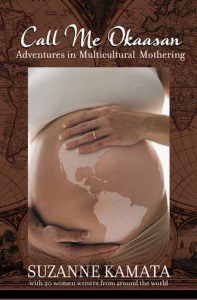 The Japan Writers Conference is a free annual event for English-language writers, held in a different part of Japan each year. In 2017, it will take place in Tokyo at the Ekoda Campus of Nihon University College of Art on Oct. 8-9, the last two days of a Japanese holiday weekend.
The Japan Writers Conference is a free annual event for English-language writers, held in a different part of Japan each year. In 2017, it will take place in Tokyo at the Ekoda Campus of Nihon University College of Art on Oct. 8-9, the last two days of a Japanese holiday weekend.
There will be will be about 30 presentations by published writers of fiction, poetry, memoir, travel writing and more. Several of those writers are former JETs.
JET alumnae Susan Laura Sullivan and Suzanne Kamata, for example, will give a joint presentation on editing anthologies. Sullivan is the editor of the forthcoming anthology “Women of a Certain Age,” while Kamata’s published anthologies include “Call Me Okaa-san” and “The Broken Bridge.”
Kamata will also give a presentation together with Ann Tashi Slater on creative nonfiction.
JET alum and textbook author Todd Jay Leonard, whose many titles include “American Traditions,” will give a lecture on “The Ever-Changing Publishing Industry,” in which he will discuss traditional versus print-on-demand publishing, followed by a Q&A session.
Poet and novelist Holly Thompson, who first came to Japan in connection with the pre-JET MEF program, will present “Writing Picture Books: Nonfiction Opportunities.” Her published works include “The Wakame Gatherers.”
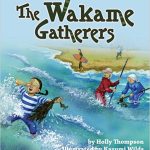 For details on those and the other presentations, visit www.japanwritersconference.org or follow @JapanWritersCon on Twitter.
For details on those and the other presentations, visit www.japanwritersconference.org or follow @JapanWritersCon on Twitter.
The Japan Writers Conference, now in its 11th year, is completely volunteer-run, and admission is free.
JET alums at Japan Writers Conference in Tokyo
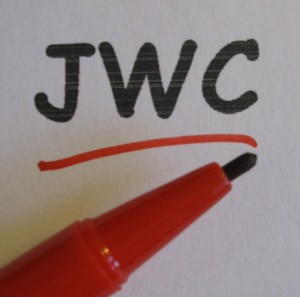 The 4th annual Japan Writers Conference will be held Oct. 10-11 in Tokyo with 30 writers giving 50-minute presentations about the artistic and business sides of their respective fields, which inlcude fiction, poetry, journalism and even EFL textbook writing. At least four of the presenters are former JETs.
The 4th annual Japan Writers Conference will be held Oct. 10-11 in Tokyo with 30 writers giving 50-minute presentations about the artistic and business sides of their respective fields, which inlcude fiction, poetry, journalism and even EFL textbook writing. At least four of the presenters are former JETs.
The venue is the Ekoda Campus of Nihon University College of Art. You can find full details by visiting http://www.japanwritersconference.org/or following the event on Twitter via http://twitter.com/JapanWritersCon
Here are some slightly shortened versions of the official descriptions of presentations to be made by JET alums:
DWAYNE LIVELY (Niigata-ken, 1996-99) “My Freeware Life.”
The lecture focuses on my experiments with various freeware writing programs, some of which promise to help improve the writing process. The first part of the lecture introduces a number of freeware writing programs that have been suggested by and/or designed by fellow writers. I will explain the results of my experiments with each program and will demonstrate how easy, or not, they are to use, how they changed my writing process and whether or not I intend to keep using them. Next, I will describe what happened when I attempted to follow a handful of “how to write a novel” plans offered free online. Finally, I will introduce the moral if the lecture, including what I learned and what I managed to accomplish during all the experiments.
Dwayne Lively’s fiction has appeared in Twister, Kansas Quarterly, and The MacGuffin. His non-fiction and reviews have appeared in Transitions Abroad, Literary Magazine Review and online at Notebookism.com. He has been a writer, teacher and editor for the better part of 20 years and worked and taught in Japan, the USA and Albania. In his dwindling free time he’s been finishing up a novel and, on occasion, writing the online journal The Crazy Japan Times ( http://www.crazyjapan.com).
SUZANNE KAMATA (Tokushima-ken, 1988-90): “Marketing for Beginners.”
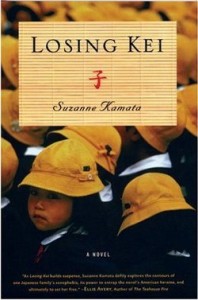 Getting your book into print is the easy part. Publishing it – making your work known to the public – takes a bit more effort. These days, writers are often expected to submit a marketing plan along with manuscripts, and most publishers expect writers to take an active role in marketing. So how do you market a book if you’re living in rural Japan, far from your target audience? Suzanne Kamata, author of five books with meagre advertising budgets, will suggest some easy, cheap, and not so obvious ways for expats to spread the word about their books.
Getting your book into print is the easy part. Publishing it – making your work known to the public – takes a bit more effort. These days, writers are often expected to submit a marketing plan along with manuscripts, and most publishers expect writers to take an active role in marketing. So how do you market a book if you’re living in rural Japan, far from your target audience? Suzanne Kamata, author of five books with meagre advertising budgets, will suggest some easy, cheap, and not so obvious ways for expats to spread the word about their books.
Suzanne Kamata again: “Kickstart Your Creativity”
Suzanne Kamata will lead participants in writing exercises meant to warm up the writer and/or kickstart creativity when the muse is absent. Bring a notebook and a writing implement.
Suzanne Kamata is the author of the novel Losing Kei (Leapfrog Press, 2008) and editor of three anthologies – Love You to Pieces: Creative Writers on Raising a Child with Special Needs (Beacon Press, May 2008) The Broken Bridge: Fiction from Expatriates in Literary Japan (Stone Bridge Press, 1997), and Call Me Okaasan: Adventures in Multicultural Mothering (Wyatt-Mackenzie Publishing, 2009). She also serves as fiction editor of the popular on-line journal literarymama.com from Tokushima, Japan, where she lives with her family.
TODD JAY LEONARD (1989-92): “So you want to publish an EFL textbook?–Four Points of View to Consider when Writing a Proposal–The Myths and Realities of EFL Publishing in Japan.”
Most likely, every language teacher in Japan has (at some point during his/her tenure) contemplated writing a textbook to fill a void in the market…in that constant search for the perfect, all encompassing textbook. What are publishers looking for in the current market? What appeals to editors who ultimately decide which titles go to production and which ones do not? What are the salespeople on the front lines hearing from their market base? What must an author do in order to get his/her book published? This presentation focuses on these very questions, offering inside insights from all the various points of view that must be considered when writing a proposal to publish a textbook–the publisher, the editor, the salesperson, and the author.
Todd Jay Leonard has been actively involved in book publishing for twenty years and has published twenty books. He lives, writes, and teaches on the southern island of Kyushu, where he is a university professor at Fukuoka University of Education. He has published extensively in academic journals, magazines and newspapers on cross-cultural, historical, and Teaching English as a Foreign Language (TEFL) themes.
TOM BAKER (Chiba-ken, 1989-91), “Interviewing Creative Subjects: Actors, Authors, Artists and Auteurs.”
Interviewing a creative subject requires thorough preparation to elicit original and interesting quotes. My talk will explain how to do the research, write the questions and conduct the interview. It will briefly touch on turning quotes into a story. A well-prepared interviewer will be familiar with the subject’s previous interviews, online self-expression and body of work. The interviewer will look for themes and connections in the work to ask probing questions about its meaning. The interviewer will prepare questions ranging from basic to technical to off-the-wall, but will use the list only as a guideline to the conversation. The interviewer will tolerate digressions (within reason) and allow thoughtful silences to bear fruit. The interviewer will look for local angles and connections to current events.
Tom Baker has been a staff writer for The Daily Yomiuri since 2001, and has interviewed Sylvester Stallone, Liv Tyler, Marlon Wayans, John Woo, Nicholas Sparks, Barry Eisler, Brian K. Vaughan, Michael Sowa and many others. He is a coauthor of Tokyo Chic and The Sushi Lover’s Cookbook.

